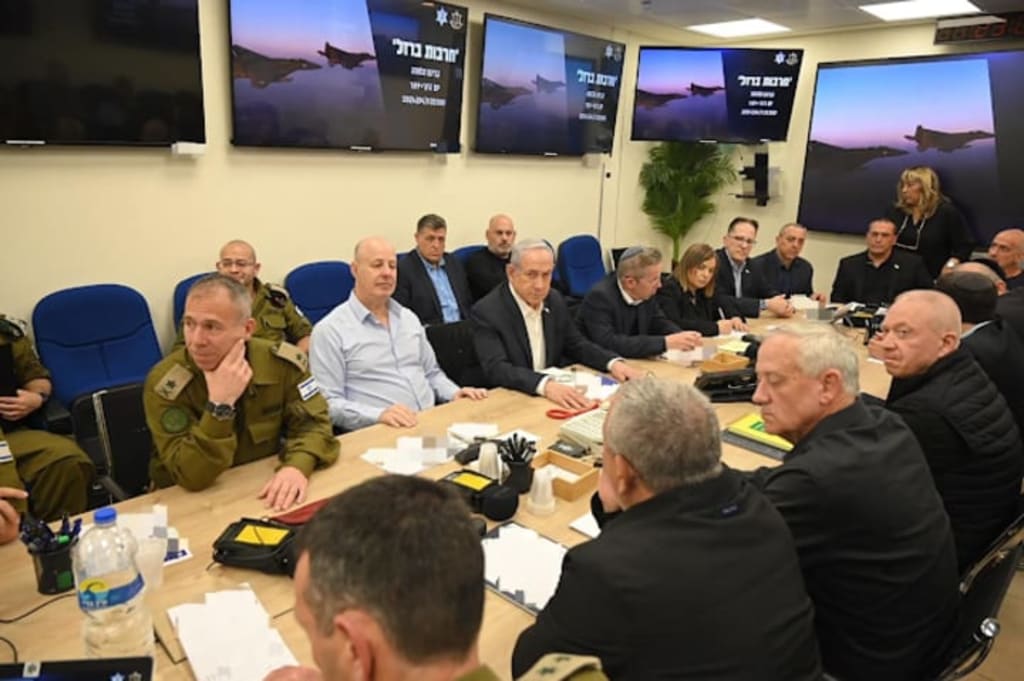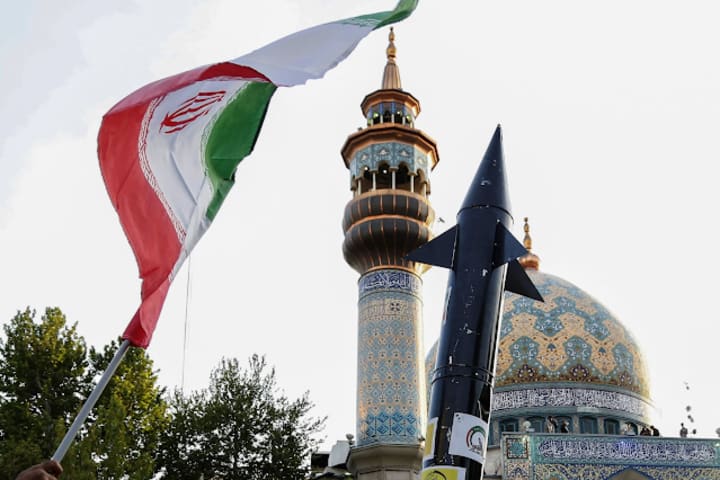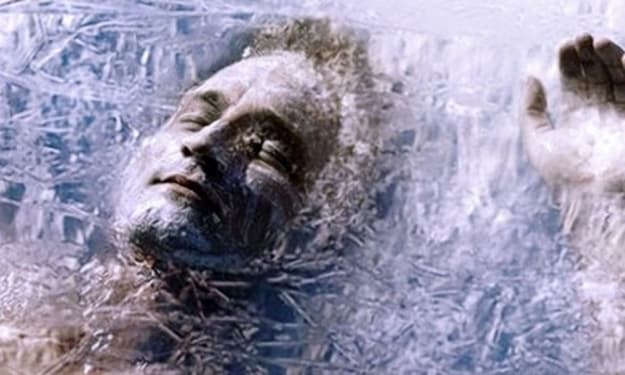
Israel's Tel Aviv A direct military strike against Iranian territory, according to two former senior Israeli military officials, would not be in Israel's best interests.
Chief of Israel's National Security Council from 2004 to 2006, retired Maj. Gen. Giora Eiland, stated that the coalition that supported Israel in repelling Iran's first-ever direct attack on Israeli territory on Sunday demonstrated "that Israel cannot do everything alone."
According to Eiland, Israel's increasing isolation from the Gaza conflict has been reversed as a result of Iran's attack and the defensive military support and intelligence it received from a coalition headed by the United States and comprising European and Arab states. Retired Israeli Col. Miri Eisin agrees with that.

ABC News was informed by both former Israeli officers that Israel should take advantage of this feeling of resurgence of support from friends and other regional actors, such as Saudi Arabia and Jordan, who see Iran as a regional threat.
According to Israeli military officials, Iran launched a volley of over 300 unmanned drones and missiles toward targets across the nation on Saturday night in retaliation for Israel. Officials said that Israel and its allies, which include the US, intercepted all but a small number of them.
According to Eisin, Israel must now prevent Iran and other enemies from launching further strikes. She added that allies shouldn't be kept "out of the room," saying that effective deterrence would also require working with the cooperation of important partners like the United States.
The Biden administration declared that it would not participate in any reaction from Israel. On the other hand, US officials are advising Israel to exercise caution.

Eiland, who oversaw the planning division of the Israel Defense Forces (IDF) from 2001 to 2003, stated that theoretically, the Israeli military could "shut down the electricity" to Tehran or cause "terrible destruction to the Iranian energy sector" by attacking the country's oil fields.
A direct military strike against Iranian military territory has not been ruled out by the Israeli government, and Eiland acknowledged that Israel was "tempted" to "try something dramatic."
According to a senior U.S. official who spoke to ABC News, Israel is unlikely to attack Iran until after Passover, which concludes after nightfall on April 30, though things could always change.
A direct military attack on Iran, according to Eiland, would put the entire region in jeopardy by starting "a real cycle of violence" between Israel and Iran.
Additionally, he issued a warning that Israel might not be prepared or equipped to fight Iran in a protracted war. He wouldn't know about Israel's present ammunition stockpiles because he was an officer in the past, but Israel is hoping that the US Congress will soon approve more military aid for the IDF.
On Saturday, Congress will vote on the issue; however, House Speaker Mike Johnson, a Republican, is expected to face opposition from some other Republicans on a separate vote regarding aid for Ukraine.
According to Eiland, Israel is able to launch more stealthy attacks on Iranian territory that do not require a direct military confrontation.
He said that one type of covert attack that Israel might think about is cyberattacks, but he also mentioned "some other creative solutions," which he was unable to reveal due to their sensitive nature.
Both former Israeli military officers stated that Israel should intensify its attacks against Iran's proxies in Yemen, Syria, Iraq, and Lebanon rather than launching a direct military attack against Iranian territory.
Eisin said Israel should make sure that through its response it regains the "initiative" and "defines the rules," by significantly increasing attacks on Hezbollah in Lebanon and pro-Iranian Shiite militias in Syria. Eisin is currently managing director of the International Institute for Counterterrorism, an Israeli think tank.

Two Hezbollah commanders were slain by the IDF in two different attacks in Lebanon, the military declared on Tuesday. The fact that those strikes were a component of Israel's response to the Iranian attack on Saturday night has not, however, been formally confirmed.
Seven Revolutionary Guard members, including two generals, were killed in that attack, which is widely attributed to but not officially claimed by Israel. It also set the stage for Iran's first-ever direct missile and drone attack against Israeli territory on Saturday.
Eiland maintained that Israel was acting in self-defense by weakening the capabilities of Iran's proxies in the area and denied that Israel made a mistake by failing to predict that Iran would launch a direct military strike involving more than a hundred ballistic missiles.
The former Israeli major general added that Israel ought to give Hezbollah a deadline to stop its daily attacks across Israel's northern border, which have been going on ever since Israel started its war in Gaza in response to the terror attack that took place in southern Israel on October 7.
About 70,000 Israeli citizens have been forced from their homes in villages close to the Israeli-Lebanese border for more than six months.
If Hezbollah did not stop attacking, Eiland suggested that Israel should threaten another major ground war against Lebanon.

Simultaneously, he contended that Israel ought to cease its hostilities with Hamas in Gaza in exchange for the release of every last hostage.
Hezbollah and the Houthis, who are based in Yemen and are supported by Iran, have declared that their attacks on Israel are a reaction to Israel's conflict in Gaza.
But the Israeli government has insisted time and time again that Israel cannot declare victory in the Gaza War until it has conducted a military incursion into the southern city of Rafah, where it believes thousands of Hamas fighters remain.
The former major general claimed that since "80%" of Hamas's military capabilities had already been destroyed, an offensive in Rafah would not significantly alter the security threat the organization posed.





Comments
There are no comments for this story
Be the first to respond and start the conversation.